Finding God’s Dice

When most people think of Albert Einstein’s contribution to physics, the theory of relativity is what comes to mind, and rightly so. What most don’t realize is that his Nobel Prize was actually awarded for explaining the photoelectric effect, a result which contradicted the classical understanding of light and helped lead to the development of Quantum Mechanics. Despite his major contributions to its development, Einstein was famously uncomfortable with the way randomness and uncertainty... Read More
From Faith Came Science: The Condemnations of 1277
by Dr. Stacy Trasancos
Filed under Christianity and Science

In 1277, Étienne Tempier, the Bishop of Paris, issued a list of 219 condemned propositions relating to details of Aristotelian texts that were irreconcilable with the Christian worldview. These propositions were not binding on Christians, but served as a guide for the scholars at the University of Paris. The decree largely dealt with the eternity of the world and creation. The Condemned Propositions The propositions are often referenced by historians of science, and their intent... Read More
Fathers of Science
by Dr. Matthew Bunson
Filed under Christianity and Science
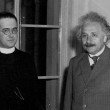
On March 12, 2008, the John Templeton Foundation made the announcement of the winner of its annual Templeton Prize, which honors achievements engaging the great questions of life and the universe. The $1.6 million prize for 2008 went to Michał Heller, a Polish cosmologist and professor in the faculty of philosophy at the Pontifical Academy of Theology in Cracow, Poland. What makes Heller additionally remarkable is that he is a Catholic priest. The 72-year-old planned to spend the prize... Read More
Atheism, Philosophy, and Science: An Interview with Dr. Michael Ruse
by Brandon Vogt
Filed under Atheism, Christianity and Science, Interviews

As a young undergraduate at Florida State University, studying mathematics and engineering, I had no idea that one of the world's leading philosophers of science worked just a couple buildings away. Had I known about Dr. Michael Ruse then, I would have jumped at the chance to meet him. He's since become one of my favorite atheist writers, displaying a sharp mind and a good will, free of needless polemics. (He's also not afraid to tattoo extinct marine arthropods on his arm if dared.) This... Read More
Was the Star of Bethlehem Real?: Responding to the Go-To Skeptic
by Jimmy Akin
Filed under Christianity and Science
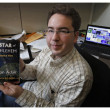
Among skeptics, Dr. Aaron Adair is sometimes hailed as the “go to” guy on the Star of Bethlehem. He’s even written a book arguing that the Star didn’t exist. Recently, he engaged a post I wrote about the Star of Bethlehem. I'd like to offer a reply to Dr. Adair in this post. First Things First First, you can read our previous interaction in the comments box on this post. I want to thank Dr. Adair for striving to maintain a positive tone, both in the combox and in his... Read More
“Cosmos” and One More Telling of the Tired Myth
by Bishop Robert Barron
Filed under Christianity and Science
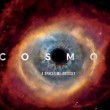
Seth MacFarlane, well known atheist and cartoonist, is the executive producer of the remake of “Cosmos,” which recently made its national debut. The first episode featured, along with the science, an animated feature dealing with the sixteenth century Dominican friar Giordano Bruno, who was burned at the stake by Church officials. A brooding statue of Bruno stands today in the Campo de’ Fiori in Rome on the very spot where the unfortunate friar was put to death. In MacFarlane’s... Read More
Can an Atheist Scientist Believe in Miracles?
by Jacalyn Duffin
Filed under Christianity and Science
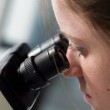
Peering down the microscope, I saw a deadly leukaemia cell and decided that the patient whose blood I was examining must be dead. It was 1986, and I was reading a large stack of bone marrow samples "blind" without being told why. Given the nasty diagnosis, I imagined that it must be for a lawsuit. Perhaps a grieving family was suing the doctor for a death that really could not have been helped. The bone marrows told a story: the patient took chemotherapy, went into remission, then relapsed,... Read More
The Rational Judgment of a Miraculous Cure
by Kevin Aldrich
Filed under Christianity and Science
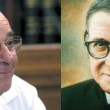
Dr. Manuel Nevado (left) and St. Josemaria Escriva de Balaguer (right). My goal in this post is to show how the Catholic Church made the rational judgment, after serious investigation, that one man received a miracle of healing through the intercession of another. In discussing this “miracle,” I will rely on two definitions of the word miracle. Fr. John Hardon, S.J., wrote: “In theological language, a miracle is an extraordinary event, performed by God, which can be perceived by... Read More
Modern Physics, Ancient Faith: An Interview with Physicist Dr. Stephen Barr
by Brandon Vogt
Filed under Christianity and Science
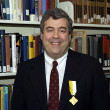
Some news hooks are irresistible, even when they're false or at least incomplete. Case in point: the alleged conflict between science and religion. Is science opposed to religion? The answer depends in large measure on what you mean by religion. If your "religion" is, say, astrology, then you could say there's a conflict between science and "religion". The science of astronomy does conflict with the "religion" of astrology. Probably most people who speak of a conflict between science and... Read More
Did the Church Teach the Earth was Flat?
by Jon Sorensen
Filed under Christianity and Science
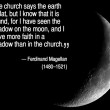
When I was young I was taught in school that Christians believed the Earth was flat. In this view, it was not until Christopher Columbus’ historic journey to the “New World” that the Church became forced to accept this as fact and do away with its false belief. The idea that Christians believed in a flat Earth has been taught in school textbooks, short films, and is believed by many even today. This notion of history stuck with me through my years as an atheist, during which I'd... Read More






